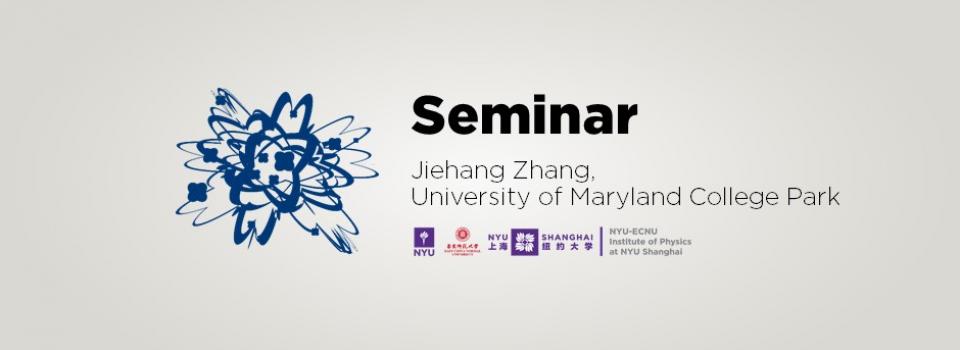
Abstract:
I will describe efforts on engineering quantum systems with individual trapped atomic ions. Qubits are represented by the internal levels of the ions, and are controlled with laser-driven interactions. Such a system presents an excellent coherence time and can find wide applications in quantum simulations and quantum computing. I will present recent experiments using these systems to study non-equilibrium matter, including discrete time-crystals [1], as well as dynamical phases [2]. A spin chain with individual resolution for more than 50 qubits enables many applications such as quantum sampling and optimization, and I will conclude with prospects in the future.
[1] J. Zhang, P. W. Hess, A. Kyprianidis, P. Becker, A. Lee, J. Smith, G. Pagano, I.-D. Potirniche, A. C. Potter, A. Vishwanath, N. Y. Yao & C. Monroe, “Observation of a discrete time crystal,” Nature 543, 217–220 (2017).
[2] J. Zhang, G. Pagano, P. W. Hess, A. Kyprianidis, P. Becker, H. Kaplan, A. V. Gorshkov, Z.-X. Gong & C. Monroe, “Observation of a many-body dynamical phase transition with a 53-qubit quantum simulator,” Nature 551, 601–604 (2017).
Biography:
After undergraduate studies at University of Science and Technology of China (BS in 2009), Jiehang Zhang worked on a precision measurement experiment at University of Maryland and TRIUMF, Canada's national lab for nuclear and particle physics. His PhD work is concerned on using Atomic, Molecular, and Optical techniques for tests of fundamental symmetries. He then did a postdoc (2015-2018) on the quantum simulation experiments with trapped ion spin chains. He will assume a professorship position at New York University, starting in January of 2019.
Seminar by the NYU-ECNU Institute of Physics at NYU Shanghai


